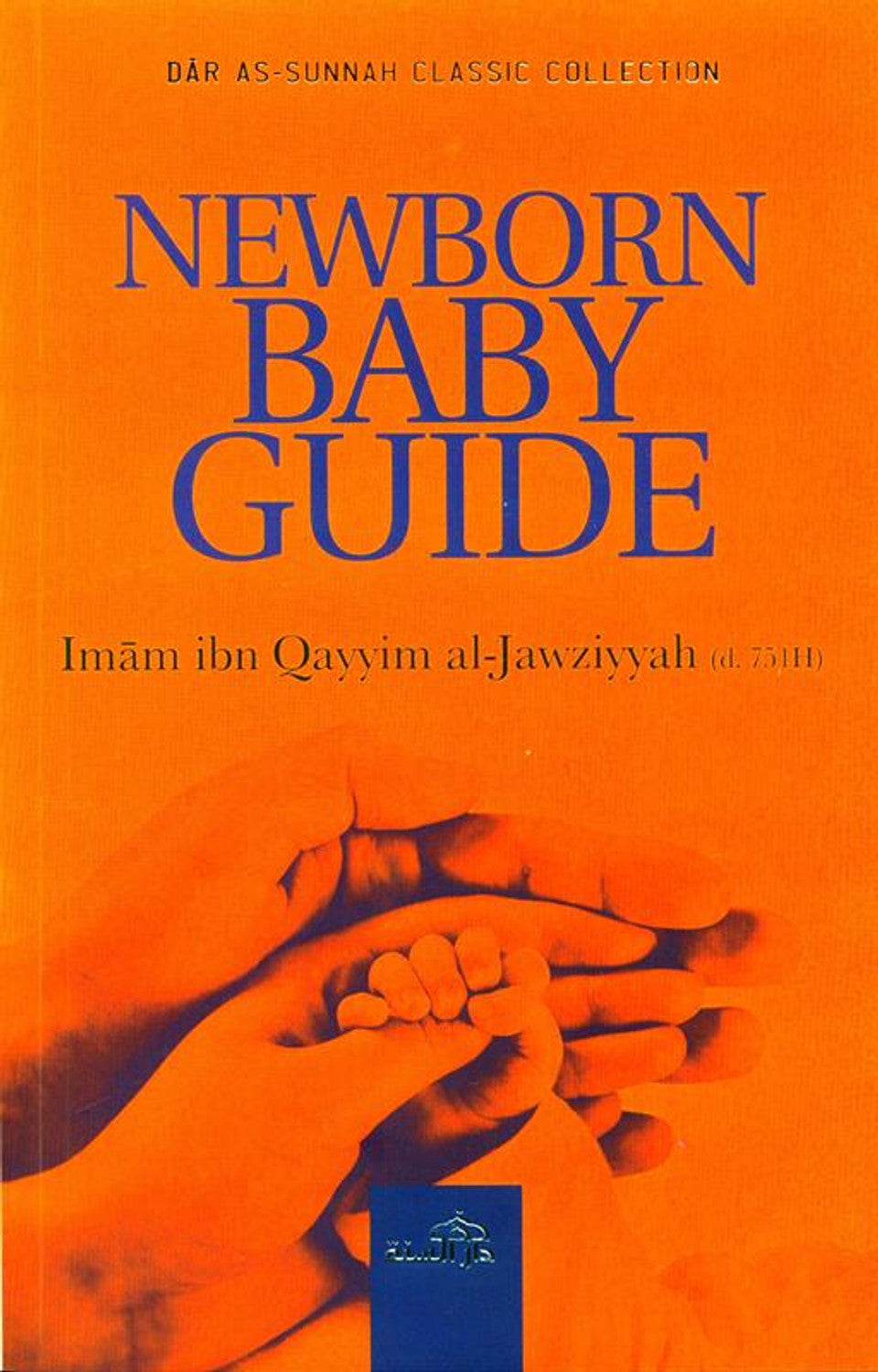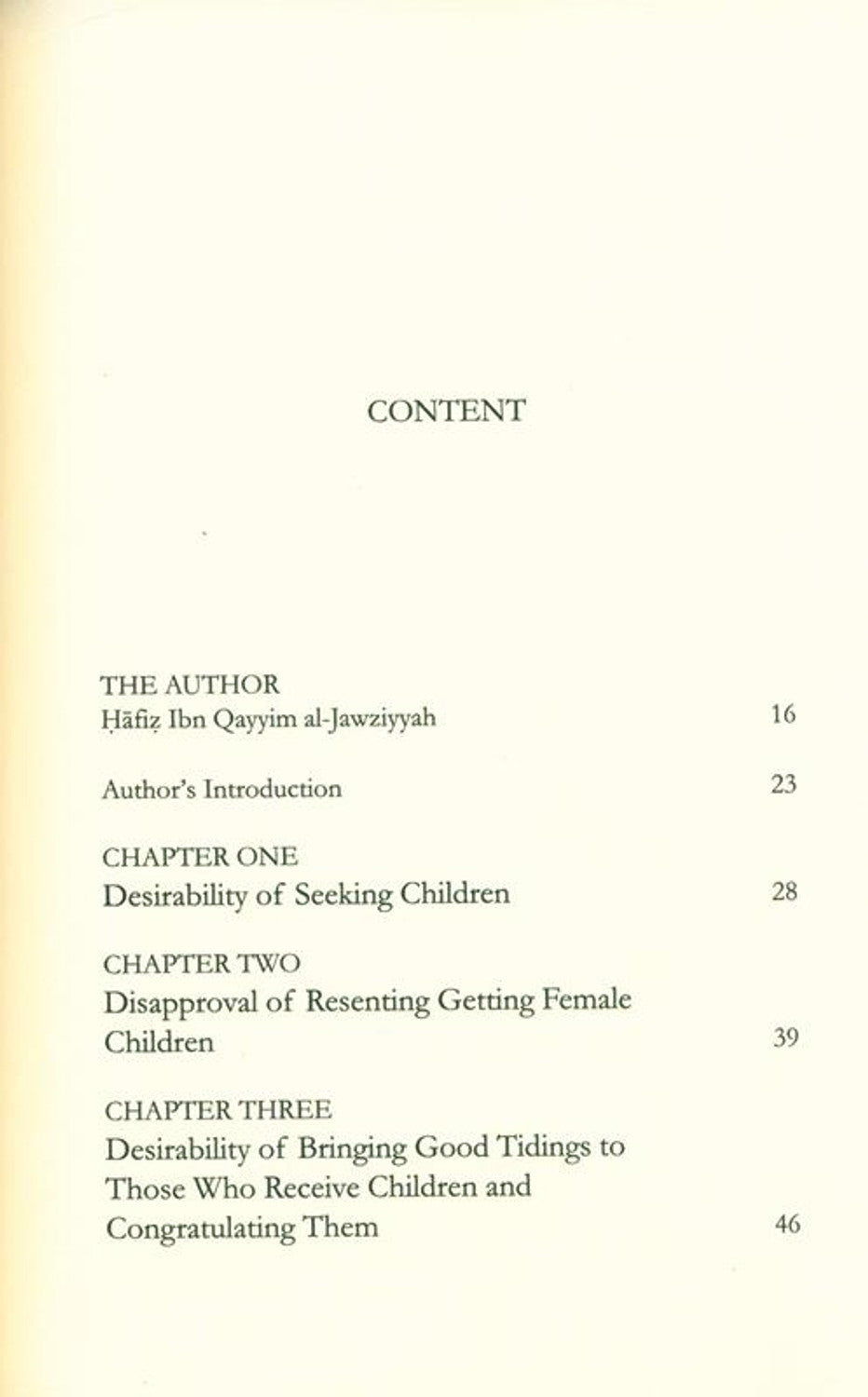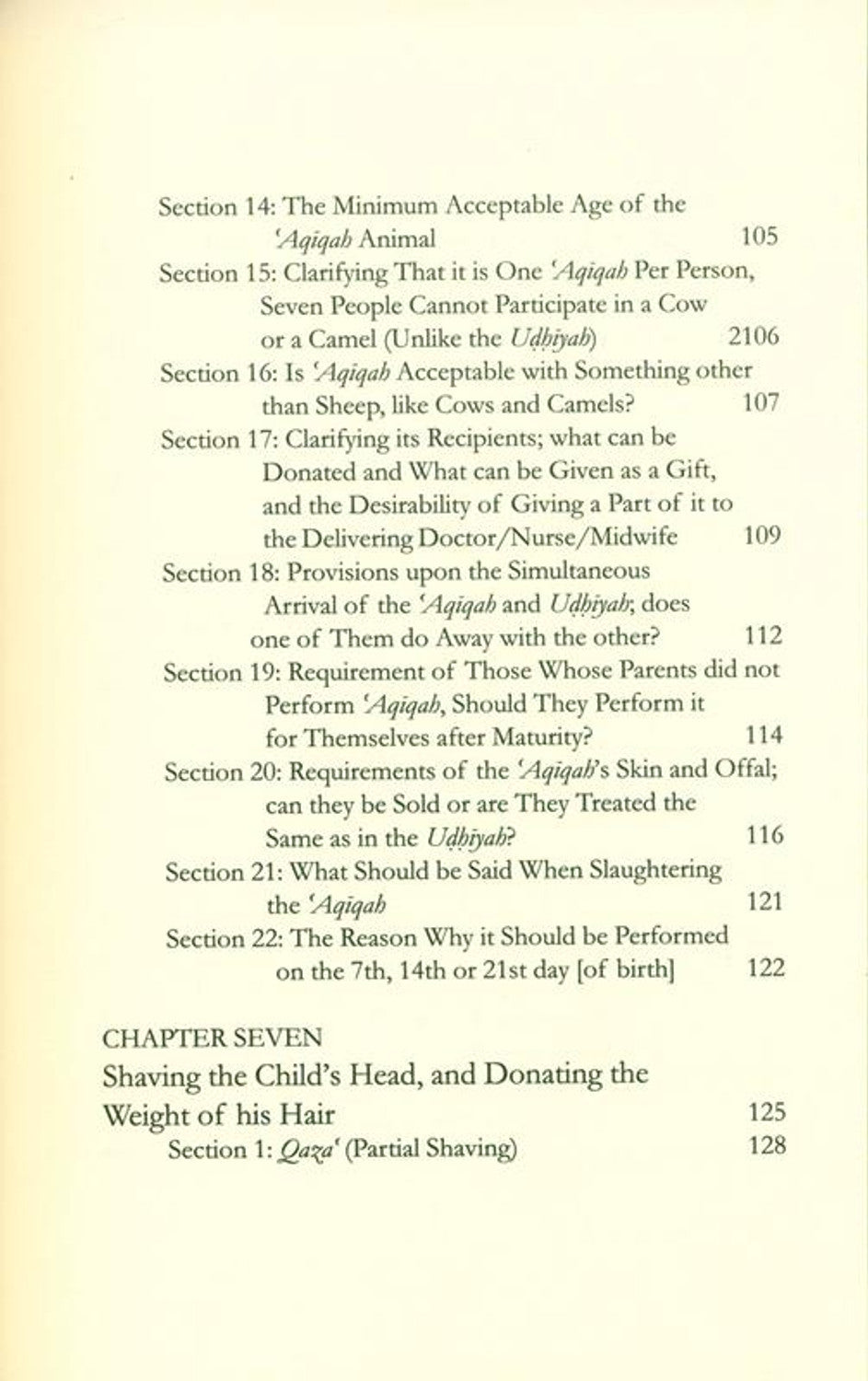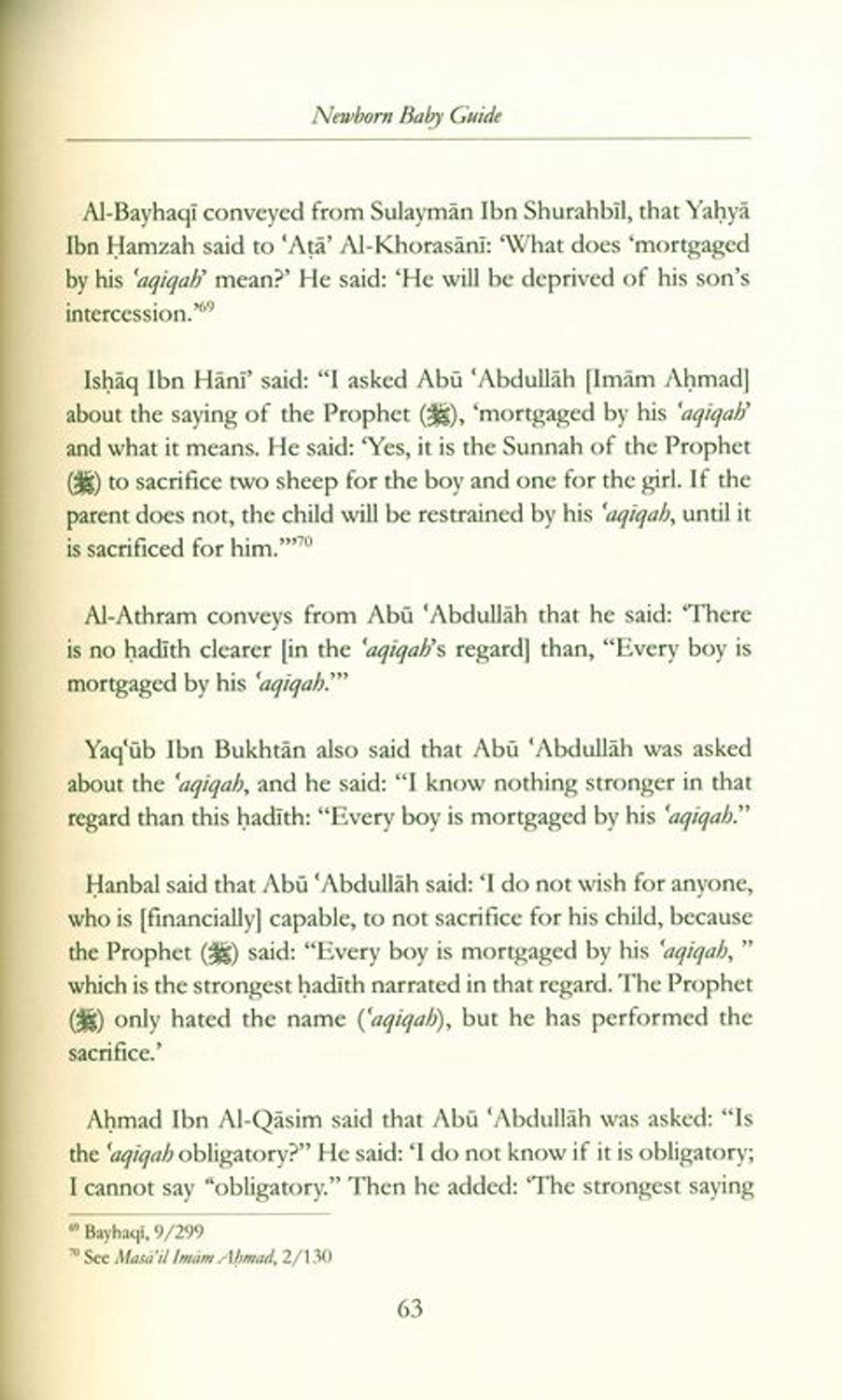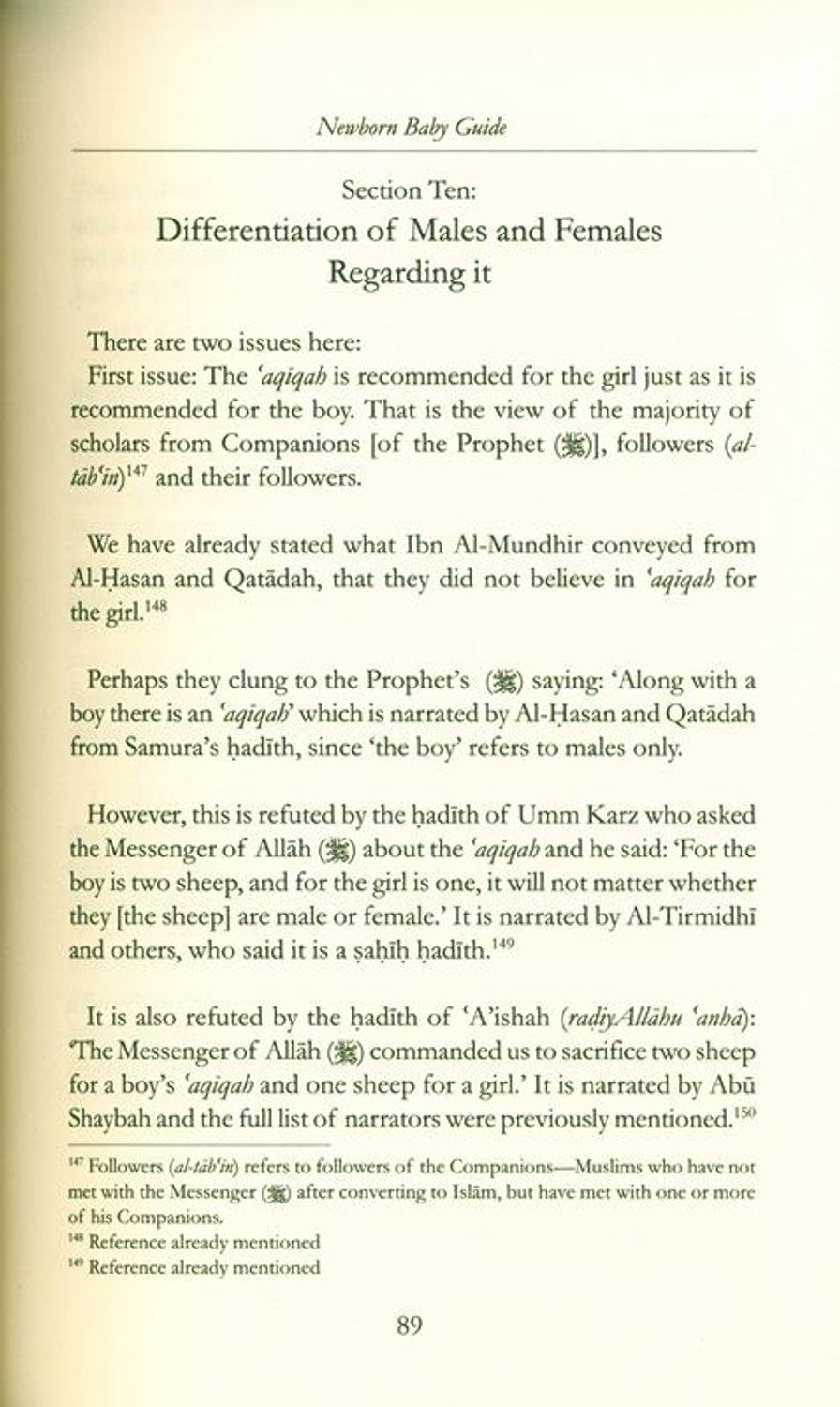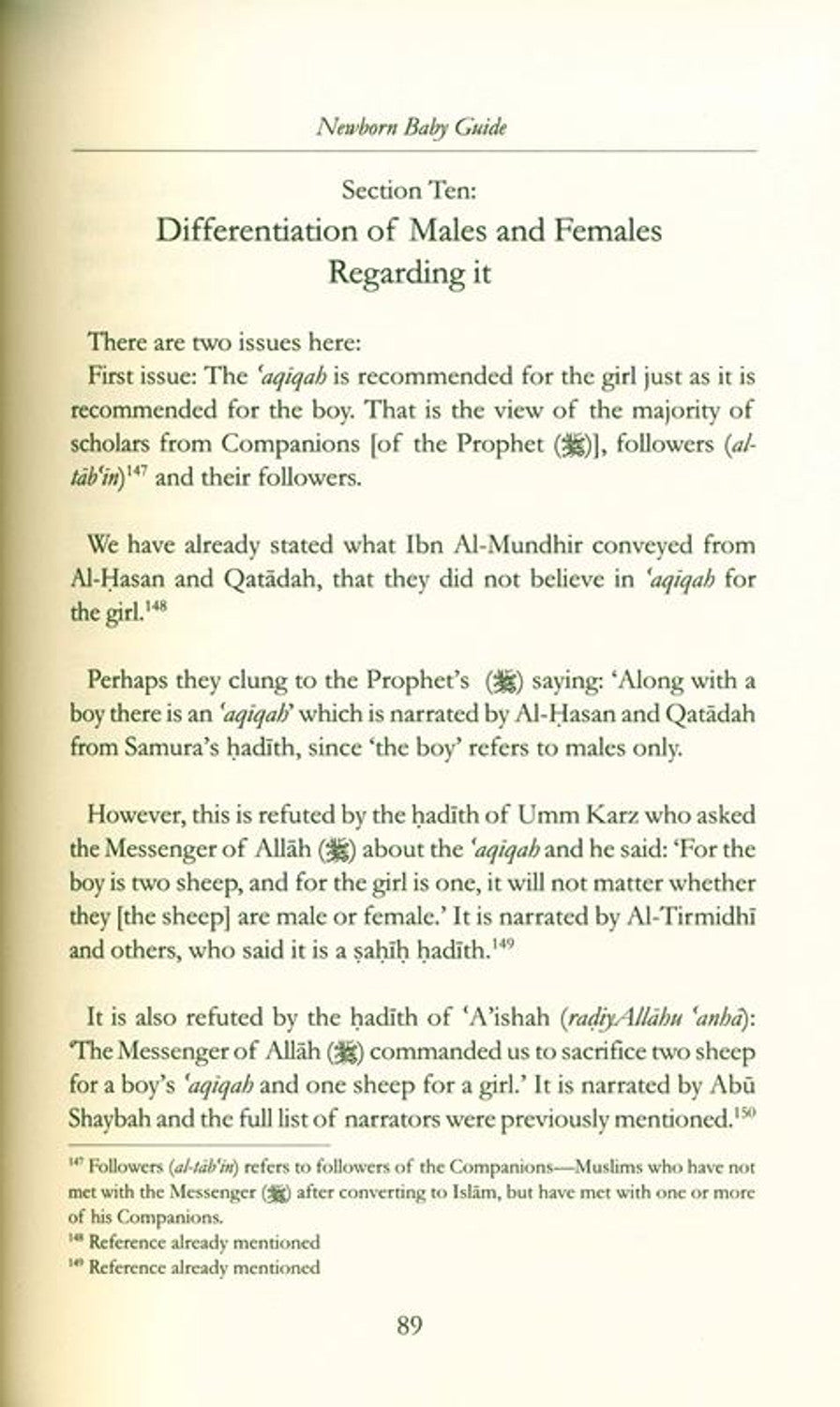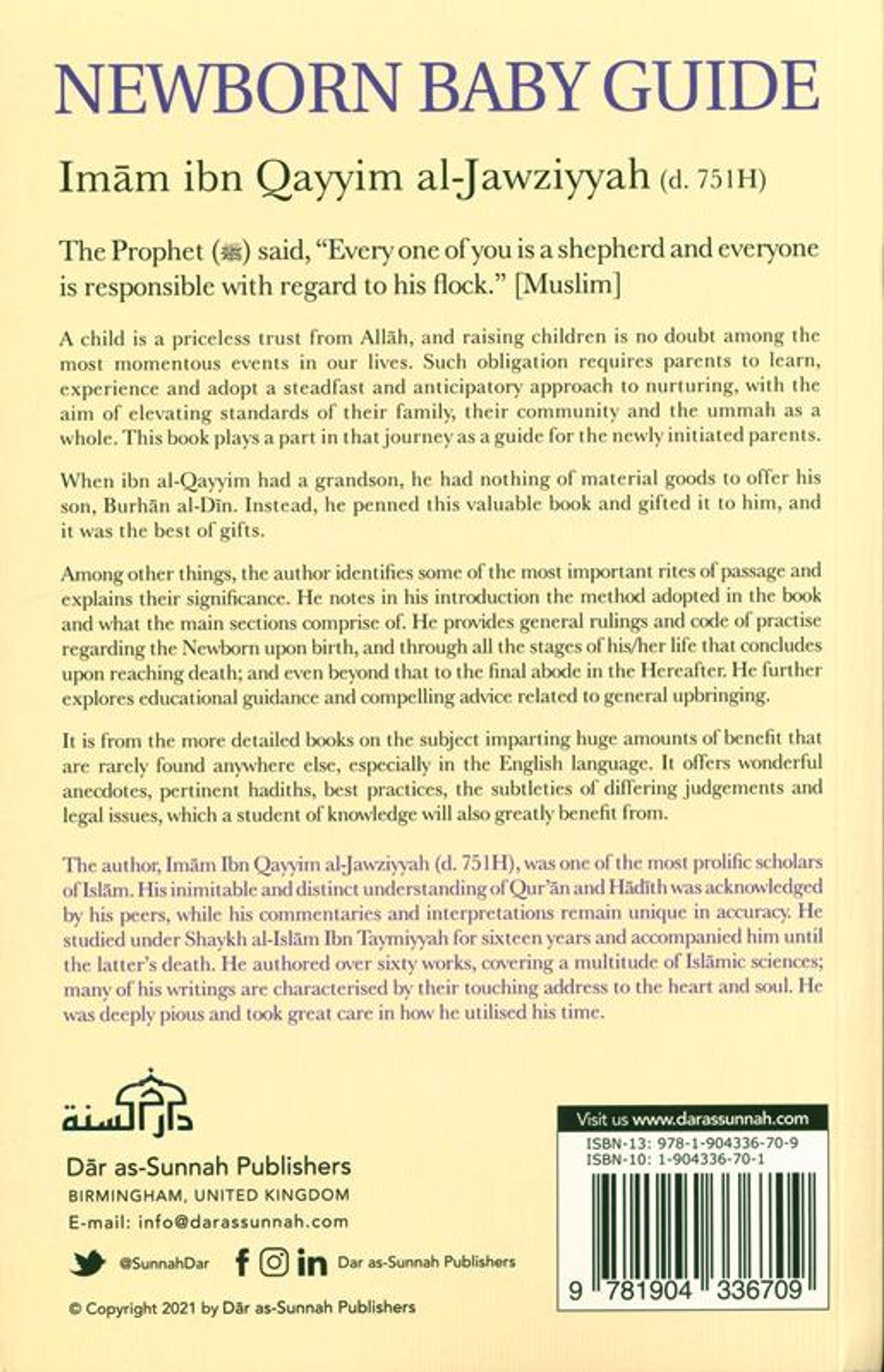Newborn Baby Guide | Imam ibn Qayyim al-Jawziyyah
Newborn Baby Guide | Imam ibn Qayyim al-Jawziyyah
Publisher:
Dar As Sunnah Publications
Author:
Imam Ibn Qayyim al-Jawziyyah
Language:
English
Binding:
Soft Cover
Pages: 384
Size: A5 |5.8 x 8.3 in| 14.8x 21 cm
Couldn't load pickup availability
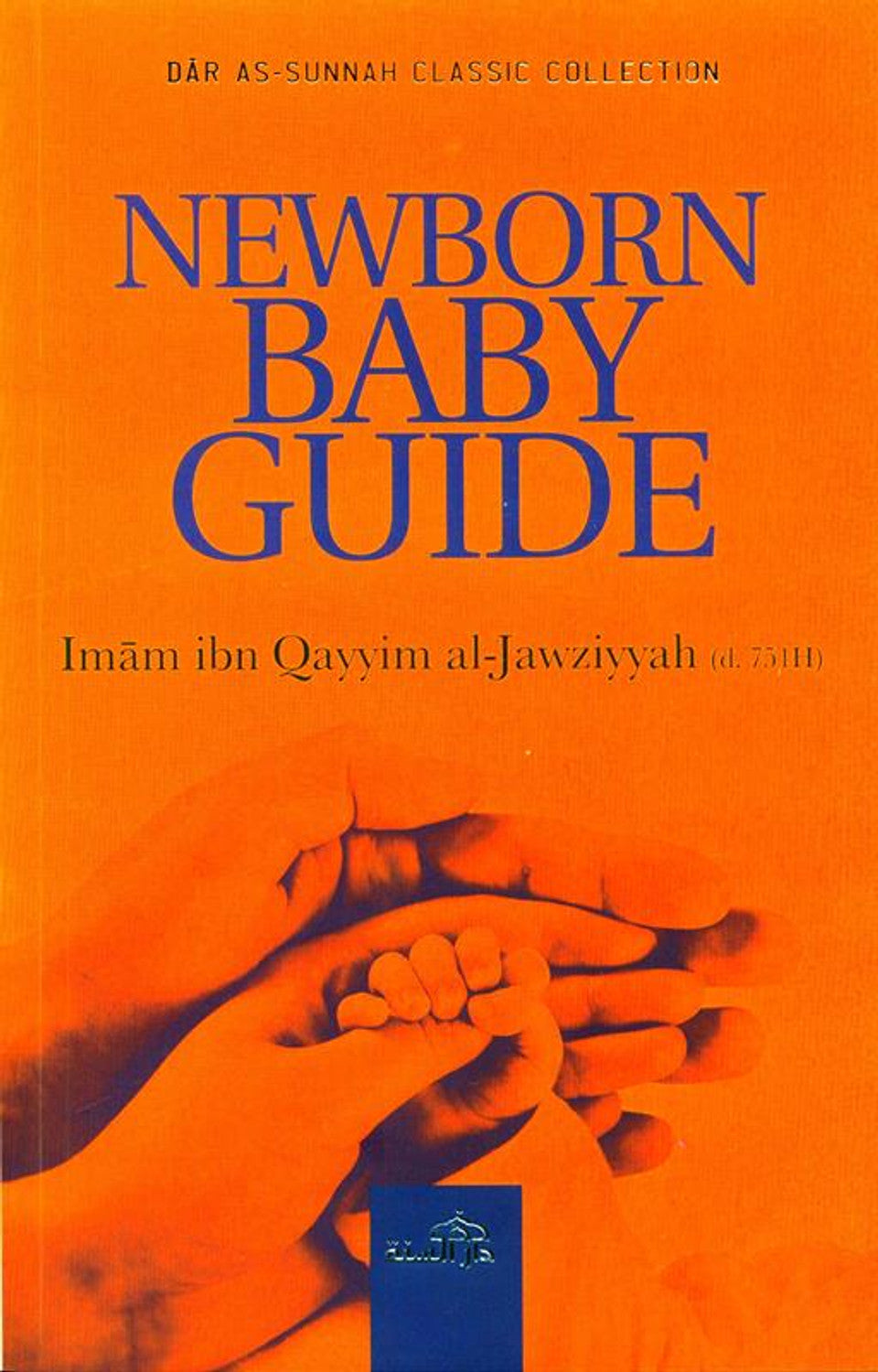
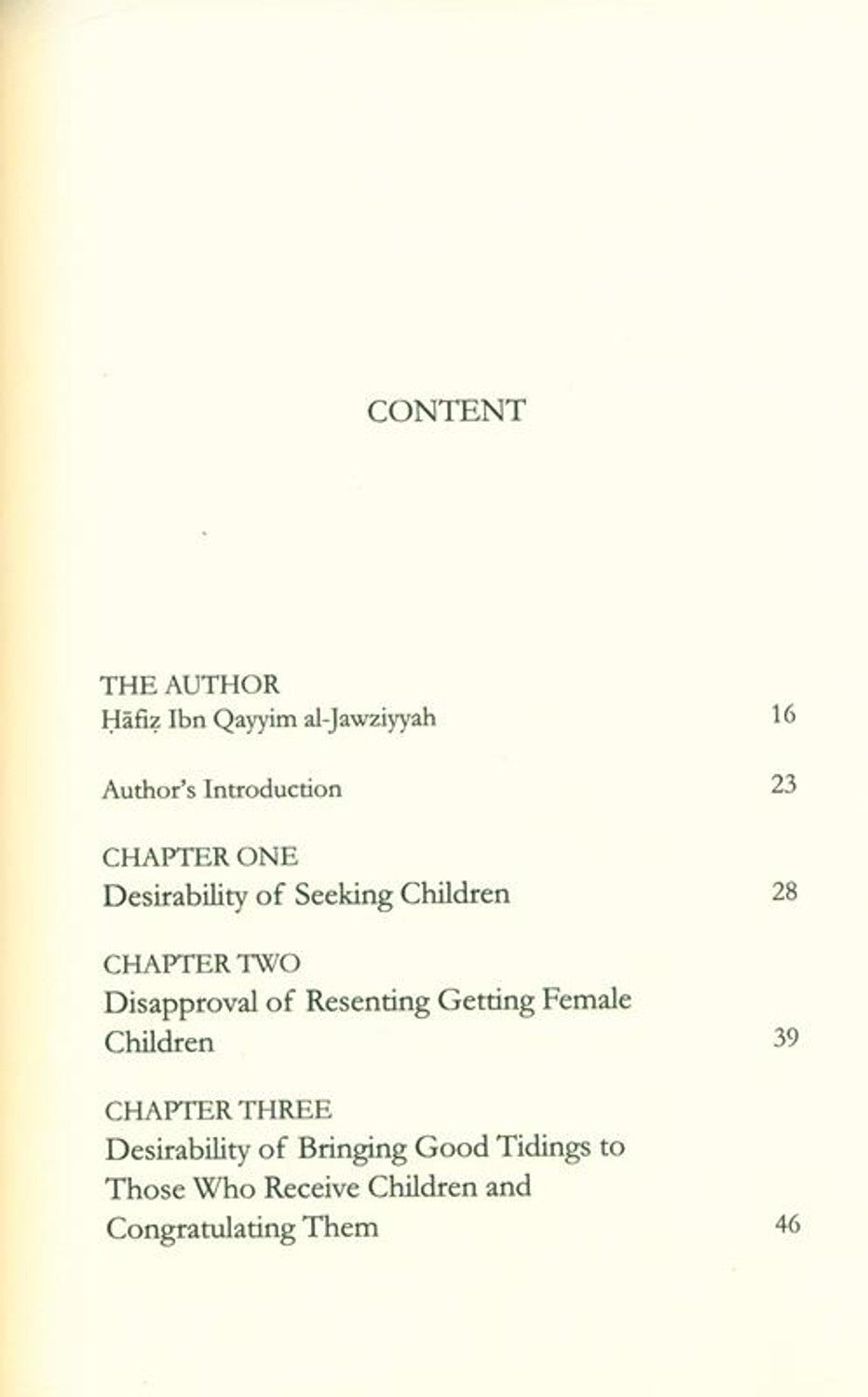
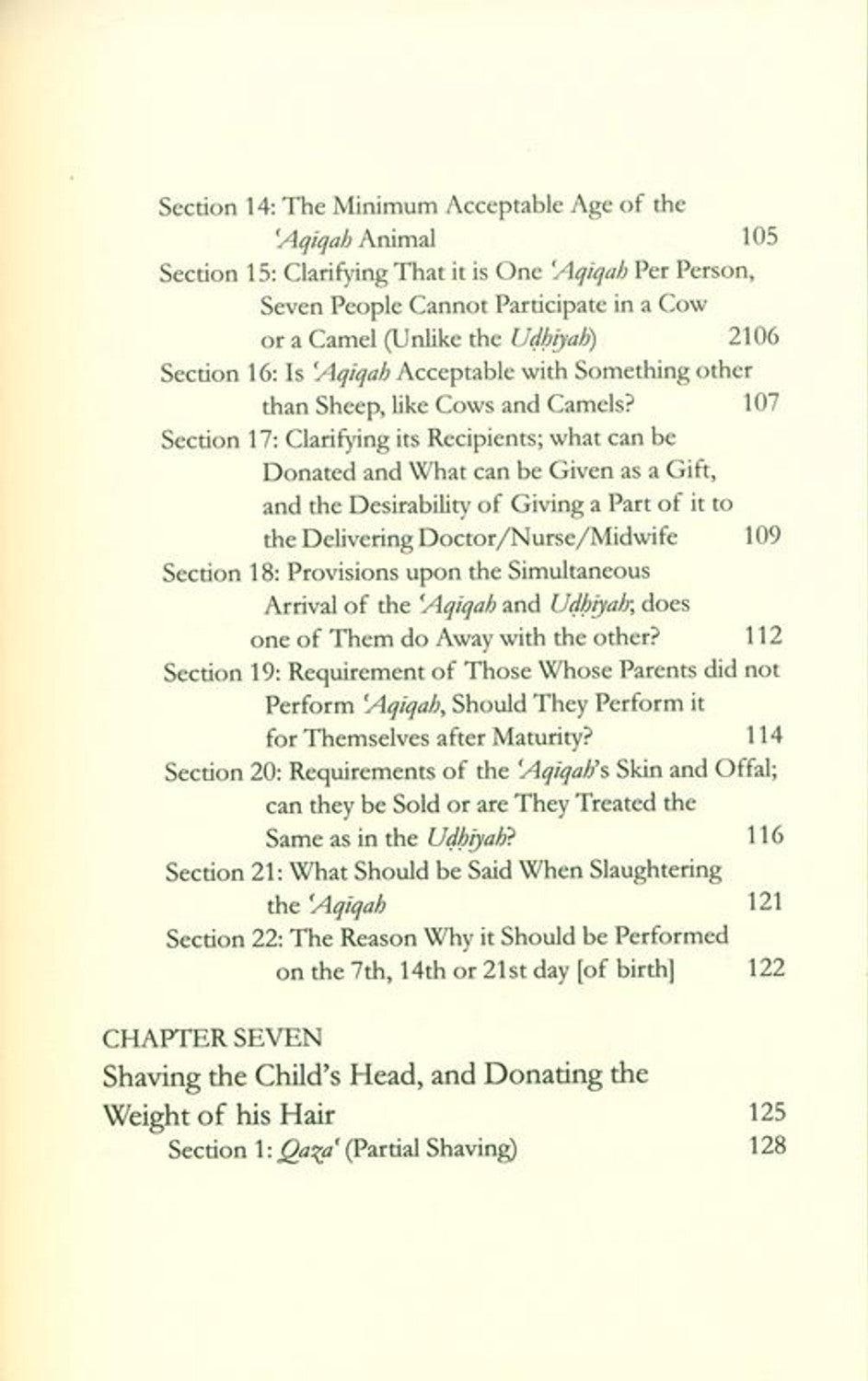
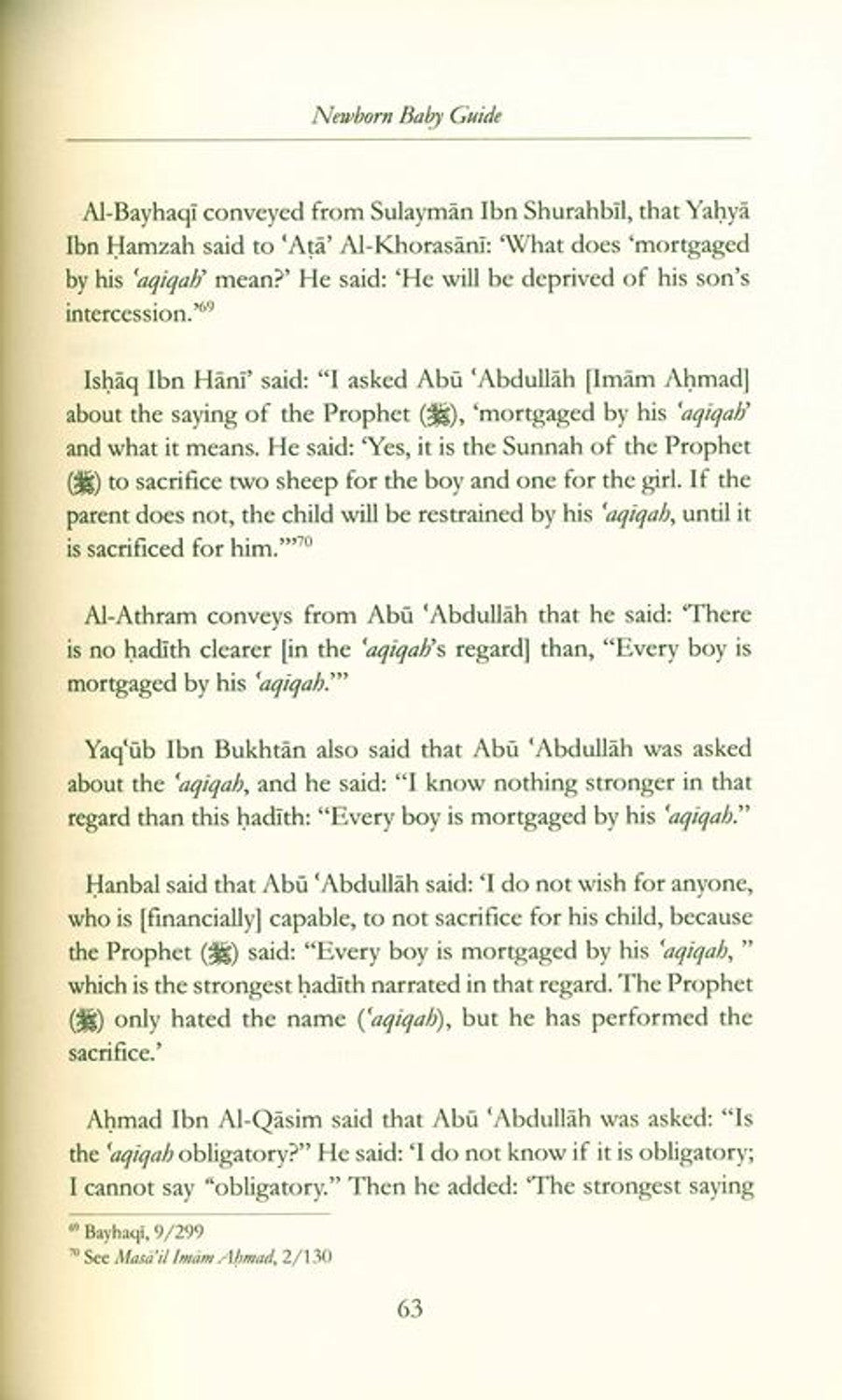
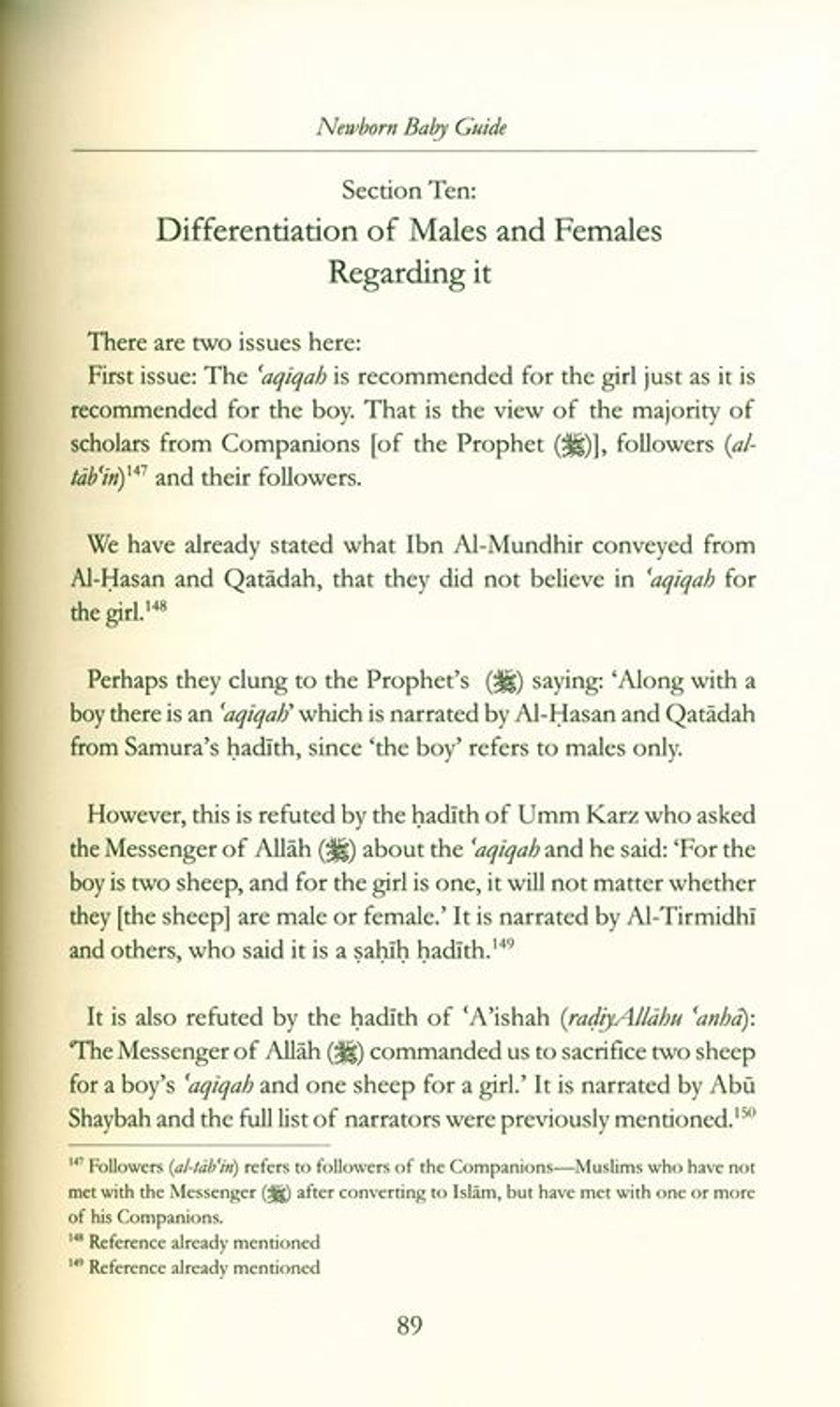
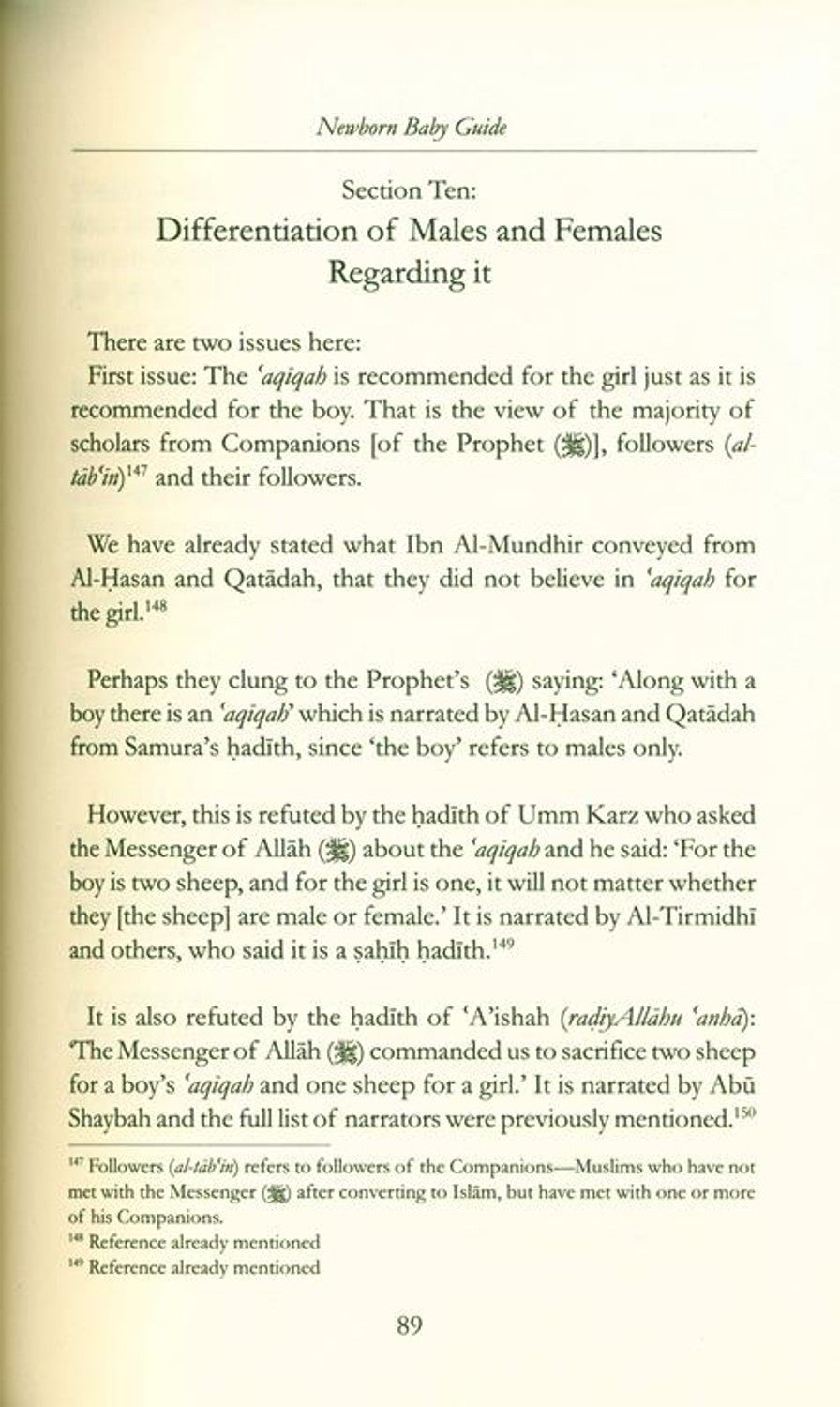
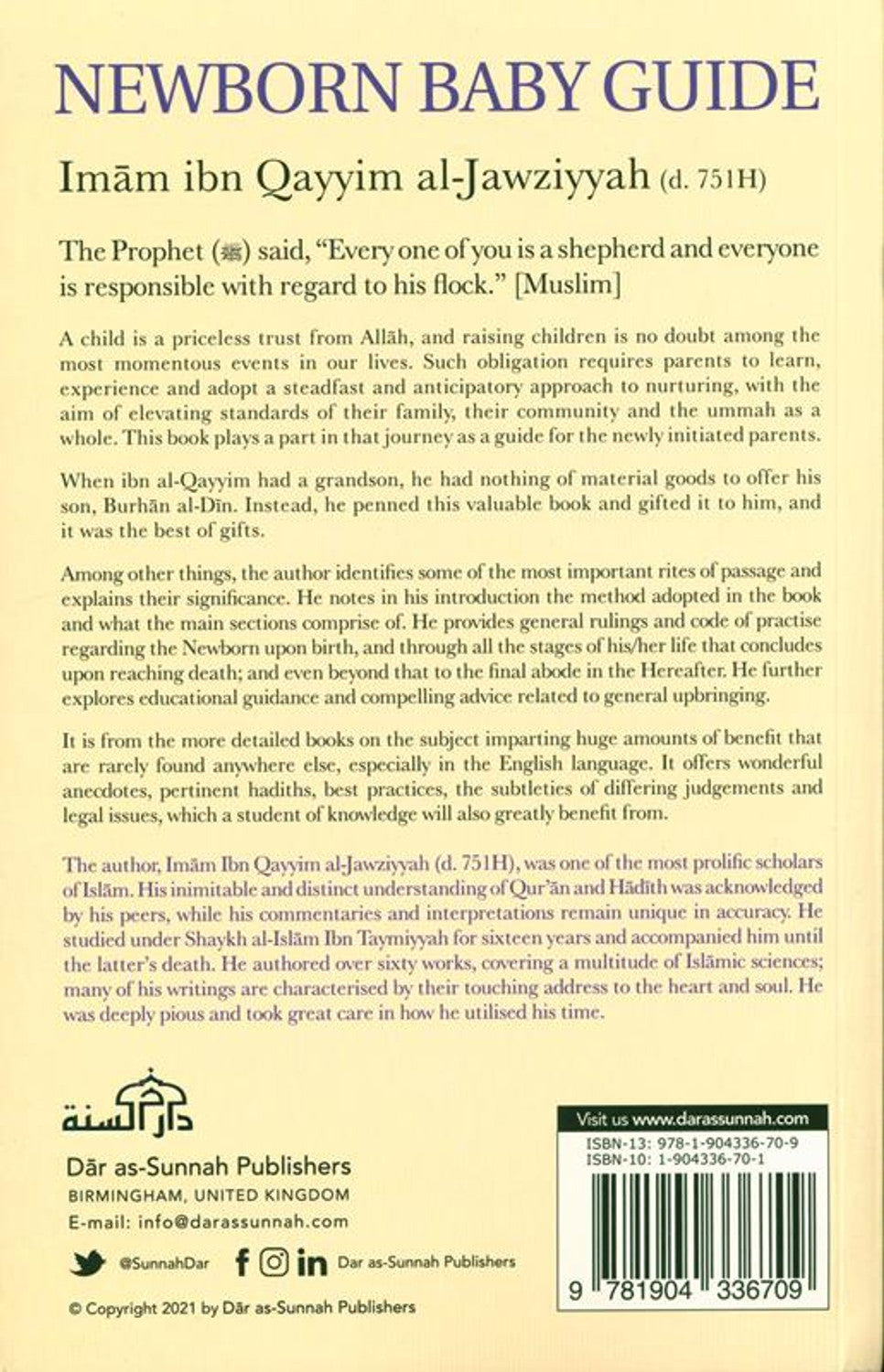
Collapsible content
Description of Book
As a product or industry expert, I want to educate you on the significance of raising a child - a priceless trust from Allah. Every parent must adopt a steadfast and anticipatory approach to nurturing, in order to elevate not only their family, but also their community and the ummah as a whole. This guide, inspired by the Prophet's words, will help newly initiated parents navigate through the important rites of passage and provide general rulings and code of practice for the newborn and their entire lifespan, even beyond death. This comprehensive guide also offers educational guidance and compelling advice on upbringing, including valuable anecdotes, pertinent hadiths, best practices, and differing legal judgements. Written by ibn al-Qayyim as a gift for his son, this book is a valuable resource for any student of knowledge.
Publisher
Dar As Sunnah Publications
Author
- Imam Ibn Qayyim al-Jawziyyah
Sample Pages - Content
Page : 01
DAR AS-SUNNAH CLASSIC COLLECTION NEWBORN BABY GUIDE Imam ibn Qayyim al-Jawziyyah (4.75111)
Page : 02
CONTENT THE AUTHOR Hafiz Ibn Qayyim al-Jawziyyah Author's Introduction CHAPTER ONE Desirability of Seeking Children CHAPTER TWO Disapproval of Resenting Getting Female Children CHAPTER THREE Desirability of Bringing Good Tidings to Those Who Receive Children and Congratulating Them 16 23 28 39 46
Page : 03
Section 14: The Minimum Acceptable Age of the 'Aqiqah Animal Section 15: Clarifying That it is One 'Aqiqah Per Person, Seven People Cannot Participate in a Cow or a Camel (Unlike the Udhiyah) 105 2106 Section 16: Is 'Aqiqah Acceptable with Something other than Sheep, like Cows and Camels? Section 17: Clarifying its Recipients; what can be Donated and What can be Given as a Gift, and the Desirability of Giving a Part of it to the Delivering Doctor/Nurse/Midwife Section 18: Provisions upon the Simultaneous Arrival of the 'Aqiqah and Udhiyah, does one of Them do Away with the other? 107 109 112 Section 19: Requirement of Those Whose Parents did not Perform 'Aqiqah, Should They Perform it for Themselves after Maturity? 114 Section 20: Requirements of the 'Aqiqah's Skin and Offal; can they be Sold or are They Treated the Same as in the Udhiyah? Section 21: What Should be Said When Slaughtering 116 the 'Aqiqah 121 Section 22: The Reason Why it Should be Performed on the 7th, 14th or 21st day [of birth] 122 CHAPTER SEVEN Shaving the Child's Head, and Donating the Weight of his Hair Section 1: Qaza' (Partial Shaving) 125 128
Page : 04
Newborn Baby Guide Al-Bayhaqi conveyed from Sulayman Ibn Shurahbil, that Yahya Ibn Hamzah said to 'Ata' Al-Khorasani: 'What does 'mortgaged by his 'aqiqah' mean?' He said: 'He will be deprived of his son's intercession.69 Ishaq Ibn Hani' said: "I asked Abu 'Abdullah [Imam Ahmad] about the saying of the Prophet (), 'mortgaged by his 'aqiqah' and what it means. He said: 'Yes, it is the Sunnah of the Prophet ()to sacrifice two sheep for the boy and one for the girl. If the parent does not, the child will be restrained by his 'aqiqab, until it is sacrificed for him."70 Al-Athram conveys from Abu 'Abdullah that he said: "There is no hadith clearer [in the 'aqiqah's regard] than, "Every boy is mortgaged by his 'aqiqah."" Yaqub Ibn Bukhtan also said that Abu 'Abdullah was asked about the 'aqiqah, and he said: "I know nothing stronger in that regard than this hadith: "Every boy is mortgaged by his 'aqiqah." Hanbal said that Abu 'Abdullah said: 'I do not wish for anyone, who is [financially] capable, to not sacrifice for his child, because the Prophet() said: "Every boy is mortgaged by his 'aqiqah," which is the strongest hadith narrated in that regard. The Prophet () only hated the name ('aqiqah), but he has performed the sacrifice.' Aḥmad Ibn Al-Qasim said that Abū 'Abdullah was asked: "Is the 'aqiqah obligatory?" He said: 'I do not know if it is obligatory; I cannot say "obligatory." Then he added: "The strongest saying Bayhaqi, 9/299 See Masa'il Imam Ahmad, 2/130 63
Page : 05
Newborn Baby Guide Section Ten: Differentiation of Males and Females Regarding it There are two issues here: First issue: The aqiqah is recommended for the girl just as it is recommended for the boy. That is the view of the majority of scholars from Companions [of the Prophet ()], followers (al- tab'in) 147 and their followers. We have already stated what Ibn Al-Mundhir conveyed from Al-Hasan and Qatadah, that they did not believe in aqiqah for the girl.148 Perhaps they clung to the Prophet's () saying: 'Along with a boy there is an 'aqiqah' which is narrated by Al-Hasan and Qatadah from Samura's hadith, since 'the boy' refers to males only. However, this is refuted by the hadith of Umm Karz who asked the Messenger of Allah () about the 'aqiqah and he said: 'For the boy is two sheep, and for the girl is one, it will not matter whether they [the sheep] are male or female.' It is narrated by Al-Tirmidhi and others, who said it is a şahih hadith. 149 It is also refuted by the hadith of 'A'ishah (radiy Allahu 'anha): The Messenger of Allah() commanded us to sacrifice two sheep for a boy's 'aqiqah and one sheep for a girl.' It is narrated by Abu Shaybah and the full list of narrators were previously mentioned. 150 Followers (al-tab'in) refers to followers of the Companions--Muslims who have not met with the Messenger () after converting to Islam, but have met with one or more of his Companions. 1 Reference already mentioned 10 Reference already mentioned 89
Page : 06
Newborn Baby Guide Section Ten: Differentiation of Males and Females Regarding it There are two issues here: First issue: The aqiqah is recommended for the girl just as it is recommended for the boy. That is the view of the majority of scholars from Companions [of the Prophet ()], followers (al- tab'in) 147 and their followers. We have already stated what Ibn Al-Mundhir conveyed from Al-Hasan and Qatadah, that they did not believe in aqiqah for the girl.148 Perhaps they clung to the Prophet's () saying: 'Along with a boy there is an 'aqiqah' which is narrated by Al-Hasan and Qatadah from Samura's hadith, since 'the boy' refers to males only. However, this is refuted by the hadith of Umm Karz who asked the Messenger of Allah () about the 'aqiqah and he said: 'For the boy is two sheep, and for the girl is one, it will not matter whether they [the sheep] are male or female.' It is narrated by Al-Tirmidhi and others, who said it is a şahih hadith. 149 It is also refuted by the hadith of 'A'ishah (radiy Allahu 'anha): The Messenger of Allah() commanded us to sacrifice two sheep for a boy's 'aqiqah and one sheep for a girl.' It is narrated by Abu Shaybah and the full list of narrators were previously mentioned. 150 Followers (al-tab'in) refers to followers of the Companions--Muslims who have not met with the Messenger () after converting to Islam, but have met with one or more of his Companions. 1 Reference already mentioned 10 Reference already mentioned 89
Page : 07
NEWBORN BABY GUIDE Imām ibn Qayyim al-Jawziyyah (d. 751H) The Prophet (*) said, "Every one of you is a shepherd and everyone is responsible with regard to his flock." [Muslim] A child is a priceless trust from Allah, and raising children is no doubt among the most momentous events in our lives. Such obligation requires parents to learn, experience and adopt a steadfast and anticipatory approach to nurturing, with the aim of elevating standards of their family, their community and the ummah as a whole. This book plays a part in that journey as a guide for the newly initiated parents. When ibn al-Qayyim had a grandson, he had nothing of material goods to offer his son, Burhan al-Din. Instead, he penned this valuable book and gifted it to him, and it was the best of gifts. Among other things, the author identifies some of the most important rites of passage and explains their significance. He notes in his introduction the method adopted in the book and what the main sections comprise of. He provides general rulings and code of practise regarding the Newborn upon birth, and through all the stages of his/her life that concludes upon reaching death; and even beyond that to the final abode in the Hereafter. He further explores educational guidance and compelling advice related to general upbringing. It is from the more detailed books on the subject imparting huge amounts of benefit that are rarely found anywhere else, especially in the English language. It offers wonderful anecdotes, pertinent hadiths, best practices, the subtleties of differing judgements and legal issues, which a student of knowledge will also greatly benefit from. The author, Imam Ibn Qayyim al-Jawziyyah (d. 751H), was one of the most prolific scholars of Islam. His inimitable and distinct understanding of Qur'an and Hadith was acknowledged by his peers, while his commentaries and interpretations remain unique in accuracy. He studied under Shaykh al-Islam Ibn Taymiyyah for sixteen years and accompanied him until the latter's death. He authored over sixty works, covering a multitude of Islamic sciences; many of his writings are characterised by their touching address to the heart and soul. He was deeply pious and took great care in how he utilised his time. لسنة Där as-Sunnah Publishers BIRMINGHAM, UNITED KINGDOM E-mail: info@darassunnah.com @SunnahDar fin Dar as-Sunnah Publishers Copyright 2021 by Där as-Sunnah Publishers Visit us www.darassunnah.com ISBN-13: 978-1-904336-70-9 ISBN-10: 1-904336-70-1 9781904" 336709
Imam Ibn Qayyim Al-Jawziyyah
A prominent medieval Islamic scholar, Ibn Qayyim’s works focus on spirituality, self-purification, and ethics. His influential writings, like "Madarij al-Salikin," continue to inspire Islamic thought and personal development.

